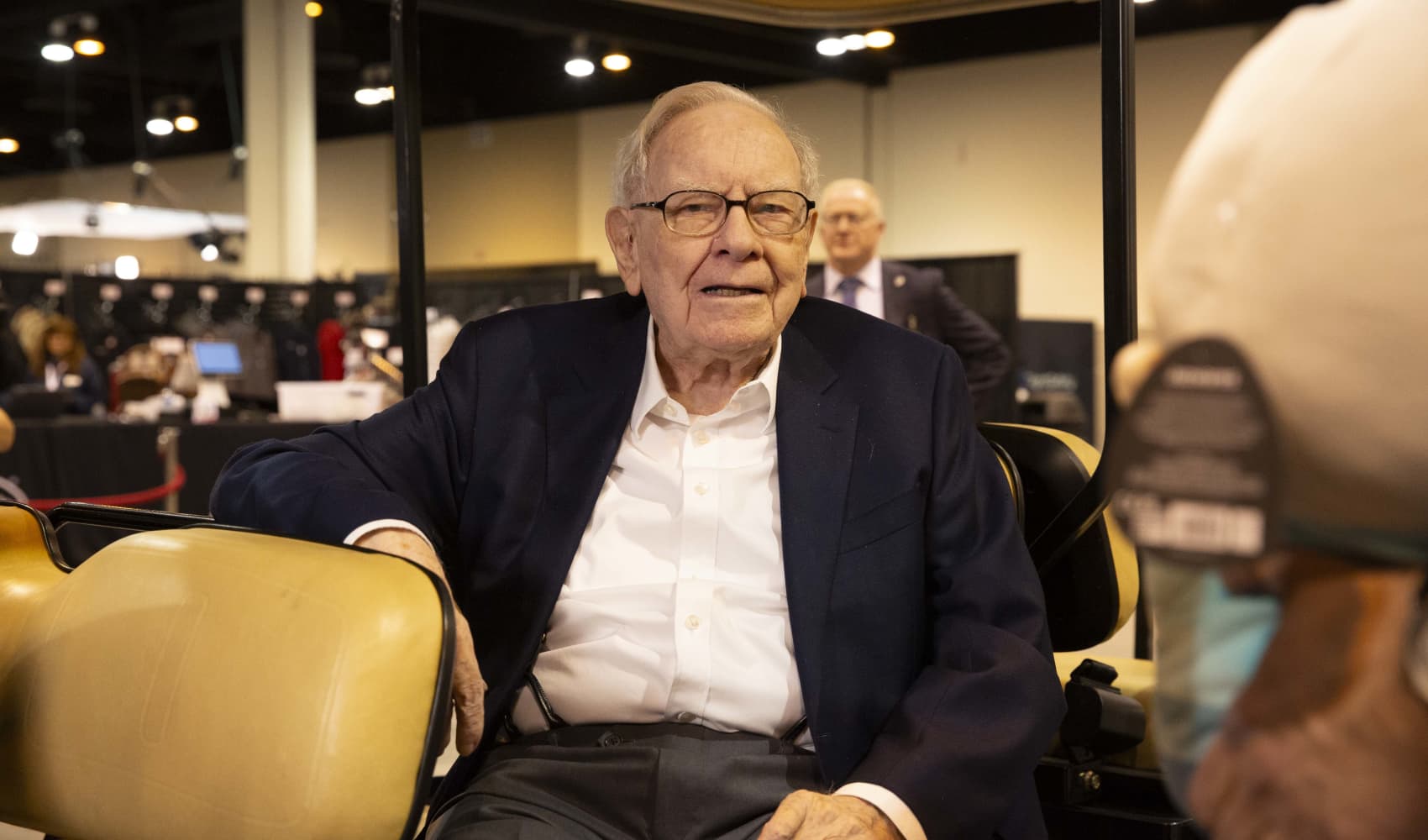Cramer Says Buy Reddit! Decoding His Lightning Round Stock Picks
Cramer's Crystal Ball: Is Reddit a "Buy"? Decoding His Lightning Round Picks
Introduction: Diving into Cramer's Rapid-Fire Recommendations
Ever wonder what it's like to get investment advice from a pro, delivered at lightning speed? Well, that's precisely what Jim Cramer's "Lightning Round" on CNBC's "Mad Money" is all about. It's a rapid-fire session where callers pepper Cramer with stock questions, and he fires back his opinions with equal velocity. Recently, one particular answer caught the attention of investors everywhere: "I think Reddit is a very good stock…I would be a buyer." But what does that really mean? And what about his other quick-fire picks? Let's unpack Cramer's recent "Lightning Round" to see what insights we can glean.
Reddit: Cramer's Unexpected Darling
Why the Bullish Call on Reddit?
Cramer's "buy" recommendation on Reddit (RDDT) might surprise some. The social media platform, known for its vibrant communities and meme-driven culture, hasn't always been viewed as a Wall Street darling. But Cramer sees something he likes. Perhaps it's the platform's growing advertising revenue, its increasing user base, or its potential for future innovation. Maybe he just likes the chaos? We'll dive deeper into the possible reasons later.
The Risks of Investing in Reddit
Before you rush to buy Reddit stock based solely on Cramer's endorsement, remember this: every investment carries risk. Reddit, like any social media company, faces challenges such as content moderation, user growth sustainability, and competition from other platforms. It's crucial to do your own research and understand the potential downsides before investing. Don't just blindly follow a recommendation, even from a seasoned investor.
Walmart: A Strategic Approach to Buying
Timing is Everything: The "Tariff Talk" Strategy
Cramer's advice on Walmart (WMT) was more nuanced. He suggests buying a small position now and then waiting for a dip triggered by "someone to talk about tariffs." This highlights the importance of timing in investing. Cramer believes that concerns about tariffs could create a buying opportunity for Walmart stock. He’s suggesting a tactical approach rather than a straight "buy" signal.
Walmart's Strength: Resilience in a Shifting Landscape
Walmart is a retail behemoth, but even giants face challenges. Cramer's strategy acknowledges the potential for short-term volatility while still recognizing Walmart's underlying strength. The company's scale, its focus on e-commerce, and its ability to adapt to changing consumer preferences make it a potentially attractive long-term investment.
Brookfield Asset Management: A Stamp of Approval
"Those Guys Are Real Good": Cramer's Confidence in BAM
Cramer's succinct endorsement of Brookfield Asset Management (BAM) – "Those guys are real good…I like the stock" – speaks volumes. It suggests a high level of confidence in the company's leadership and its business model. Brookfield is a global alternative asset manager with a diverse portfolio of investments, including real estate, infrastructure, and renewable energy.
Understanding BAM's Appeal: Diversification and Expertise
Brookfield's appeal lies in its diversification and its expertise in managing complex assets. The company has a proven track record of generating strong returns for its investors. Cramer's recommendation suggests that he believes Brookfield is well-positioned to continue its success in the future. Think of it as betting on a well-managed, diversified portfolio rather than a single stock.
OneMain: A Warning Sign
"Too Risky": Cramer's Negative Assessment of OneMain
Cramer didn't mince words when it came to OneMain (OMF): "Too risky. I want you to get out of that right now." This is a strong and clear warning sign. OneMain is a financial services company that provides personal loans to non-prime borrowers.
The Risks of Lending to Non-Prime Borrowers
Cramer's concern likely stems from the inherent risks associated with lending to non-prime borrowers. These borrowers are more likely to default on their loans, which can negatively impact OneMain's financial performance. Cramer's advice suggests that he believes the potential rewards do not outweigh the risks in this case. He’s basically saying, “Steer clear!”
Harley-Davidson: A Potential Bounce, Not a Slam Dunk
"Bounce From Here": A Cautious Optimism for HOG
Cramer's take on Harley-Davidson (HOG) was more nuanced than his other recommendations. He acknowledges that the company doesn't have the sales that he "really likes," but he believes the stock "can bounce from here." This suggests a cautious optimism, rather than a strong endorsement. He sees potential for a short-term recovery, but not necessarily a long-term turnaround.
Harley-Davidson's Challenges: Adapting to a Changing Market
Harley-Davidson faces challenges such as an aging customer base and declining sales. The company is working to attract younger riders and expand into new markets, but it faces stiff competition. Cramer's recommendation suggests that he believes the stock may be undervalued in the short term, but he remains cautious about its long-term prospects. He’s not writing it off completely, but he’s not exactly revving his engines for it either.
Decoding Cramer's Lightning Round: Key Takeaways
So, what can we learn from Cramer's recent "Lightning Round"? Here are a few key takeaways:
- Do your own research: Don't blindly follow anyone's advice, even Jim Cramer's.
- Consider your risk tolerance: Not all investments are suitable for all investors.
- Think long-term: Don't get caught up in short-term market fluctuations.
- Diversify your portfolio: Don't put all your eggs in one basket.
- Understand the company: Know what the company does, how it makes money, and what its challenges are.
The Power of Due Diligence: Don't Just Take Cramer's Word for It
Remember, Cramer's "Lightning Round" is just a starting point. It's a quick snapshot of his opinions, not a comprehensive investment analysis. It's crucial to do your own due diligence before making any investment decisions. Read company reports, analyze financial statements, and consult with a financial advisor if needed. Don't just take Cramer's word for it, or anyone else's for that matter.
Investing in a Meme Stock: The Reddit Gamble
Understanding the Risks of Investing in Meme Stocks
Reddit is often considered a "meme stock," which adds another layer of complexity to the investment decision. Meme stocks are characterized by their popularity among retail investors on social media platforms like Reddit. They can experience extreme price volatility, driven by social sentiment rather than fundamental value.
The Potential Rewards of Investing in Reddit
While meme stocks are risky, they can also offer the potential for high returns. If Reddit continues to grow its user base and attract advertisers, the stock could appreciate significantly. However, it's important to be prepared for the possibility of a sharp decline.
Conclusion: Cramer's Call and Your Investment Strategy
Jim Cramer's "Lightning Round" provides interesting insights into his current market views. He's bullish on Reddit, strategic on Walmart, confident in Brookfield, bearish on OneMain, and cautiously optimistic about Harley-Davidson. Ultimately, the decision to invest in any of these stocks rests with you. Remember to do your own research, consider your risk tolerance, and develop a well-thought-out investment strategy. Happy investing!
Frequently Asked Questions (FAQs)
- Is Jim Cramer always right about his stock picks?
No, no one is always right about stock picks, including Jim Cramer. His recommendations should be seen as opinions, not guarantees. Always do your own research before investing.
- What does "due diligence" mean in investing?
Due diligence refers to the process of thoroughly researching a company or investment opportunity before making a decision. This includes analyzing financial statements, reading company reports, and understanding the company's business model and competitive landscape.
- Is Reddit a risky investment?
Investing in Reddit carries risks, like any stock. As a social media company, Reddit faces challenges related to content moderation, user growth, and competition. It’s also often considered a “meme stock,” which can lead to increased volatility.
- How should I interpret Cramer's "sell" recommendation on OneMain?
Cramer's "sell" recommendation suggests he believes the risks associated with OneMain outweigh the potential rewards. This is due to the company's focus on non-prime borrowers, who are more likely to default on their loans. It doesn’t guarantee the stock will fail, but it's a strong warning sign.
- What is a "meme stock" and why is it risky?
A meme stock is a stock that gains popularity among retail investors on social media, often driven by viral trends. This can lead to extreme price volatility that isn't necessarily based on the company's fundamentals, making it a risky investment.






